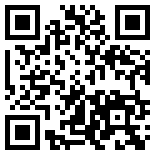考研英語考研到了后的一個月,,如何安排復習有效,? 很多同學的心從開始復習到現(xiàn)在從來就沒有定過,這也就是為什么有那么多人到后的關鍵時刻突然繃不住的原因,。那些一心考研的同學,,他們一定是咬定青山不放松,每天的狀態(tài)只顧著去學習,,哪里顧得上考慮能不能考上的問題,。
1.如果你是在校大學生,要記住,,宿舍是睡覺的地方,,圖書館是學習的地方。不要在宿舍學習,,不然會有一萬個干擾你的事情,。不要在睡覺的時候還想著今天沒有學夠,如果不休息好,,第二天將沒有任何效率,。
2.一定要相信自己,只要你認真的復習了,,就一定要懷著必勝的決心,。要相信跟你考同一個學校同一個專業(yè)的人,水平跟你也是相當?shù)?,他會的你也都會,,你不會的他也不會,你不用懼怕他,,只要盡自己大的努力去認真復習就可以勝利,。
3.相信自己是必然因素,盲目自信是大毒瘤,。毒瘤摘的越早越好,,越到后越容易致癌。該背的內容一定要及時背,,有些同學總覺得自己聰明絕頂無人能及,,把重要的背誦內容留到后一周,結果手忙腳亂,,到了考場七零八落,。
4.自制力比較弱的同學,請自覺掉你手機里的所有游戲,,或者去圖書館的時候干脆不要再用智能手機。不然當你稍有一點點不想學習的念頭產(chǎn)生,就會無端生出無數(shù)個干擾你的信息,。
5.每天給自己定制適當?shù)挠媱?。所謂適當,就是你覺得自己努力一把一定可以完成的,。不要早上把計劃塞的滿滿當當,,結果只完成一小部分,一到晚上整個人垂頭喪氣自怨自艾,。好的狀態(tài)是每天都覺得自己很充實,,但又不至于精疲力盡,這樣到第二天的時候依舊可以信心滿滿活力四射,。
6.每個人的身體都有極限,,撐不住的時候不要強求。有些同學追求一整天的高強度學習,,為了節(jié)省時間每天只吃一頓飯,,再困也不去午休,再暈也不會站起來,。要記住,,任何事情物極必反,保證身體的健康才是學習的本錢,,如果狀態(tài)特別不佳,,甚至可以休息一個小時走到戶外散散步,呼吸一下新鮮空氣,,磨刀不誤砍柴功,。
What would you do with $590m? This is now a question for Gloria Mackenzie, an 84-year-old widow who recently emerged from her small, tin-roofed house in Florida to collect the biggest undivided lottery jackpot in history. If she hopes her new-found fortune will yield lasting feelings of fulfillment, she could do worse than readHappy Moneyby Elizabeth Dumn and Michael Norton.
These two academics use an array of behavioral research to show that the most rewarding ways to spend money can be counterintuitive. Fantasies of great wealth often involve visions of fancy cars and extravagant homes. Yet satisfaction with these material purchases wears off fairly quickly what was once exciting and when the new becomes old-hat; regret creeps in. It is far better to spend money on experiences, say Ms Dumn and Mr Norton, like interesting trips, unique meals or even going to the cinema. These purchases often become more valuable with time — as stories or memories — particularly if they involve feeling more connected to others.
This slim volume is packed with tips to help wage slaves as well as lottery winners get the most “happiness bang for your buck.” It seems most people would be better off if they could shorten their commutes to work, spend more time with friends and family and less of it watching television (something the average American spends a whopping two months a year doing, and is hardly jollier for it). Buying gifts or giving money to charity is often more pleasurable than purchasing things for oneself, and luxuries are most enjoyable when they are consumed sparingly. This is apparently the reason McDonald’s restricts the availability of its popular MacRib — a marketing trick that has turned the pork sandwich into an object of obsession.
Readers ofHappy Moneyare clearly a privileged lot, anxious about fulfillment, not hunger. Money may not quite buy happiness, but people in wealthier countries are generally happier than those in poor ones. Yet the link between feeling good and spending money on others can be seen among rich and poor people around the world, and scarcity enhances the pleasure of most things for most people. Not everyone will agree with the authors’ policy ideas, which range from mandating more holiday time to reducing tax incentives for American homebuyers. But most people will come away from this book believing it was money well spent.
25. This text mainly discusses how to ______.
[A] balance feeling good and spending money
[B] spend large sums of money won in lotteries
[C] obtain lasting satisfaction from money spent
[D] become more reasonable in spending on luxuries
AC選項的重心分別是什么?
熟詞生意,,溫故知新
fire
n.火,;火災v.放火;解雇
考點:
under fire受到抨擊
light
adj.輕的,;淺色的 n.光v.點亮
考點:
shed some light on闡明,;
come to light被曝光
range
n.范圍 v.變化
考點:
range from A to B從A變化到B;
a range of一系列
favor
n.好感,,好處vt.贊成,,支持
考點:
in favor of支持
seriously
adv.認真地;嚴重地,;嚴肅地
考點:
take A seriously認真對待A
exercise
n.練習,;鍛煉;運用vt.鍛煉,;行使(權力,、義務)
考點:
exercise conscious control over對…施加有意識的控制,;
exercise rights行使權利
grant [grɑ?nt]
vt.授予,授權 n.授予物,,補助金
考點:
it is taken for granted that這是理所當然的,;
taking A for granted認為A是理所當然的
aim
n.目標 v.以…為目標;旨在
考點:
aim A at B將A瞄準B,;
aim to do旨在
anything
n.任何事物,;相當于something(否定,條件或者疑問句中)
考點:
anything but不是
ahead
考點:
get ahead取得進步,;
ahead of time提前
愛品網(wǎng) IPNO.CN
b2b免費推廣平臺
掃掃有驚喜



